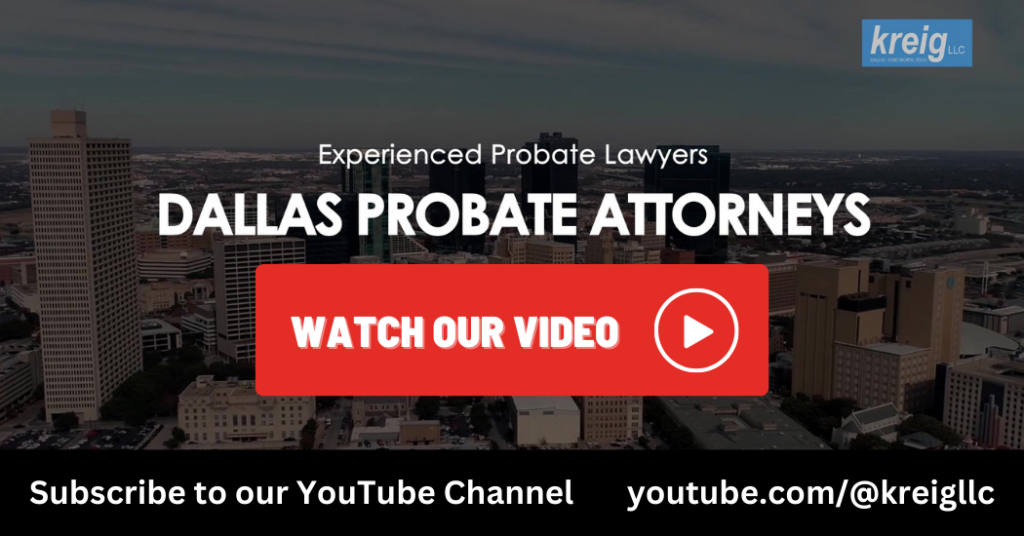In a person’s will, they may leave either personal or real property to an entity rather than to an individual. They could leave land to a city, business, organization, county, or the like. What happens when there is a suit against a county rather than an individual? What is the controlling law and how is it decided if the suit is actually against the county itself? In re San Jacinto County answers these questions.
Probate Case
In re San Jacinto County, 416 S.W.3d 639 (Tex. App. 2013)
Facts of the Case: The Estate, the Will, and the Application Process
On April 19, 2012, Jack Polk passed away in Harris County. George Polk was named the executor and beneficiary of the estate. As a part of the will, Jack Polk devised his real property (land) in San Jacinto County to San Jacinto County for it to be used for a park. However, the will also provided if the property is not used as a park then the gift will be taken from San Jacinto County. When the will was submitted for probate in Harris County, George asked the Probate Court to “issue a declaration finding that the mineral interests owned by Decedent in San Jacinto County are not included within the term ‘real property’ as was provided in one of the articles of Jack Polk’s will.
The opposing party filed a motion for change of venue in which it alleged that venue must be in San Jacinto County as pursuant to the Texas Civil Practice and Remedies Code which states that an action against a county shall be brought in that county. George responded citing Texas Probate Code saying that it was the law which should control where the venue is. This law states that “venue for any cause of action related to a probate proceeding pending in a statutory probate court is proper in the statutory probate court in which the decedent’s estate is pending.” Here, this means that because the will was submitted for probate in Harris County, the suit about the minerals would also take place in Harris County. The trial court denied the opposing party’s motion to transfer. The court of appeals, however, found that this was a case against the county and therefore the venue must be in San Jacinto County. They then granted the motion to transfer to San Jacinto County.
What This Case Means: Court Hearing Requirements
The court found that the controlling law would be from the Texas Civil Practice and Remedies code and not the Texas Probate Code as George Polk had argued. They found that there were no exceptions to this rule and that when a venue is sued, such as a county, the suit must take place in that venue.
George Polk also argued that his action was not “against the county” meaning that the section of the Texas Civil Practice and Remedies Code which the opposing party cited would not apply. To determine whether his suit was against the county, the court looked at what relief George sought in his allegations. The court found that George sought declaratory relief meaning that George was asking the court to issue a declaration that the mineral interests under the land were not a part of the land that was given to the county. In seeking this relief, George Polk had filed a judicial proceeding which meant that if it was prosecuted, it could result in a judgment disfavoring or against the county. The court found this sufficient to show that George Polk was filing a suit against San Jacinto County, and therefore, the venue for the case must be in San Jacinto County pursuant to Texas Civil Practice and Remedies Code.
Do You Need Help and Advice from an Experienced Probate Attorney?
If you are looking for an experienced probate attorney in the Dallas-Fort Worth metro area, look no further. We represent clients with sensitive probate matters and offer a variety of services like probate administration, litigation, filing of will or trust documents and more. Call us today for a FREE attorney consultation at (469) 895-4333.

Related Questions
Can you contest a probated will in Texas?
When someone dies, their will must go through probate court in order to be executed. This is true in every state, including Texas. Probate court is where the will is proved to be valid and the deceased person’s assets are distributed according to their wishes.
If you believe that a will is not valid, or that the deceased person’s assets are not being distributed according to their wishes, you may be able to contest the will in probate court. However, there are some specific requirements that must be met in order to do this.
First, you must have standing. This means that you must be an heir or beneficiary of the deceased person. If you are not, you will not be able to contest the will.
Second, you must have grounds for contesting the will. There are a few different reasons why a will may be invalid, such as if it was not properly signed or witnessed. If you do not have a valid reason for contesting the will, your case will likely be dismissed.
If you do have standing and grounds for contesting a will in Texas probate court, it is important to act quickly. There are strict deadlines for filing a contestation, and if
Can you sue the executor of an estate in Texas?
If you have a claim against the estate of someone who has died, you may be able to bring a lawsuit against the executor of the estate in Texas probate court. The executor is the person responsible for handling the deceased person’s affairs and distributing their assets. If you believe that the executor has mishandled the estate, or if you have a claim against the estate that has not been resolved, you can file a lawsuit against them in probate court. Probate court is a court that deals with matters relating to wills and estates, and it is where most lawsuits against executors are filed.
To bring a lawsuit against an executor in Texas probate court, you must first file a petition with the court. In your petition, you will need to state your claim against the estate and why you believe the executor is liable. Once your petition is filed, the court will set a hearing date and notify the executor of your lawsuit. At the hearing, both sides will present their evidence and arguments to the judge, who will then decide whether or not the executor is liable. If the judge finds in your favor, they may order the executor to pay damages to you from the estate.
How long do you have to contest a probate in Texas?
If you want to contest a probate in Texas, you have to act fast. You only have a limited amount of time to file a lawsuit challenging the probate. The time period starts running from the date of the decedent’s death, and if you don’t file your lawsuit within that time, you’ll be barred from doing so.
There are a few different grounds on which you can contest a probate in Texas. For example, you can contest the validity of the decedent’s will, or you can contest whether the person who is serving as the executor or administrator of the estate is properly doing so. You might also have standing to contest the probate if you’re owed money by the estate but haven’t been paid.
If you think you might have grounds to contest a probate in Texas, it’s important to talk to an experienced attorney as soon as possible. An attorney can help you understand your rights and options, and can make sure that your lawsuit is filed within the applicable time period.
What court handles probate cases in Texas?
The court that handles probate cases in Texas is the probate court. This court has the authority to oversee the administration of estates and trusts, and to make decisions on matters relating to probate and estate planning. If you have a question about whether or not you can bring a law suit against a Texas county in probate court, the answer is yes, you can. The probate court has the jurisdiction to hear and decide cases involving wills, trusts, and other matters related to estate planning. If you have an issue with a will or trust, or if you believe that a county has mishandled an estate, you can file a lawsuit in probate court.
How to probate a will in Texas without a lawyer?
If you have been named as the executor in a will, or if someone has died without a will, you may be wondering how to probate a will in Texas without a lawyer. The process of probating a will is generally handled by the county probate court, and while it can be done without an attorney, it is often helpful to have one.
There are a few things that you will need to do in order to probate a will in Texas. First, you will need to file the will with the probate court. You will also need to notify all of the heirs and beneficiaries of the estate. Once that is done, you will need to inventory all of the assets of the estate and pay any debts and taxes that may be owed. Finally, you will need to distribute the assets of the estate according to the terms of the will or Texas law.
While it is possible to do all of this without an attorney, it is often helpful to have one. An attorney can help you navigate the sometimes complicated legal process and make sure that everything is done correctly. If you are considering bringing a law suit against a Texas county in probate court, you should definitely speak with an attorney first.
Don't miss out, get a copy today!












